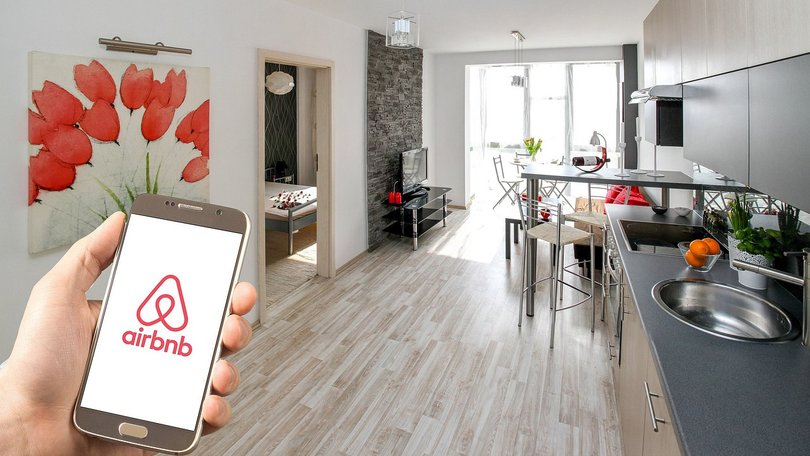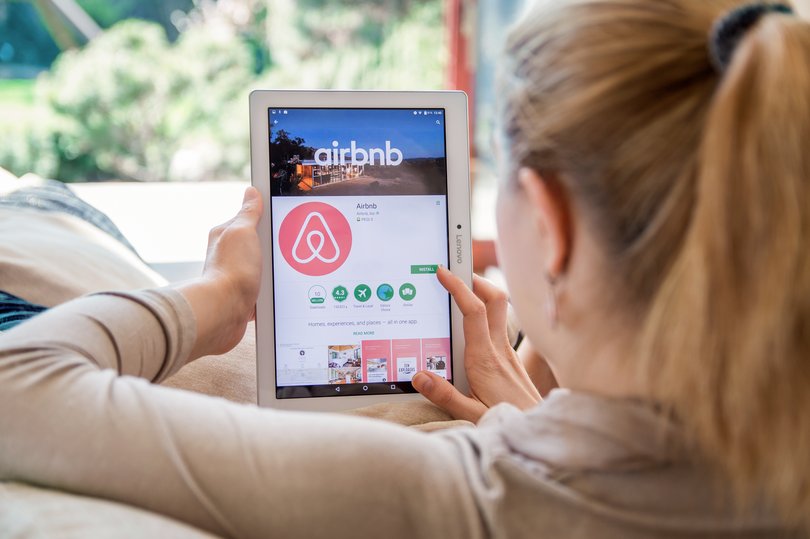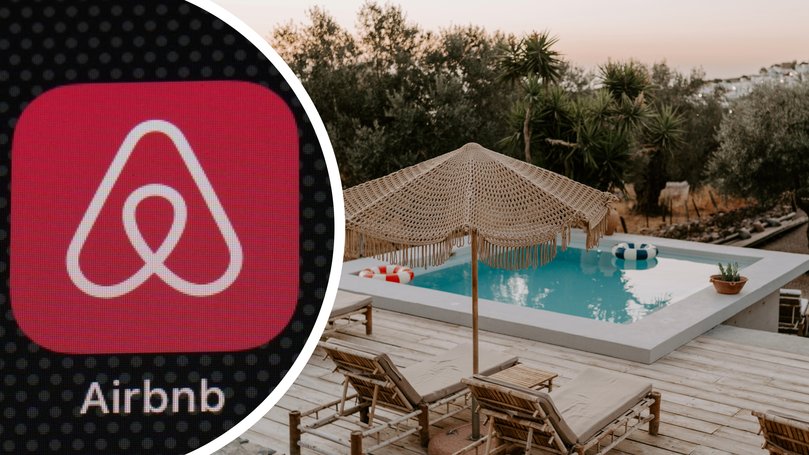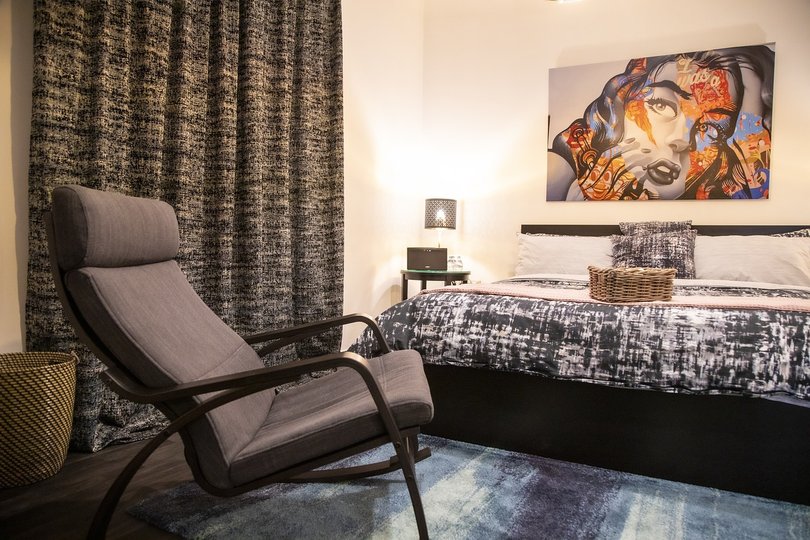The sting of an Airbnb rejection: Hosts explain why they turn down all sorts of travellers

When a woman in her early twenties requested to book Vicky Borman’s one-bedroom Heritage-listed cottage in the English village of St Neots last summer, something didn’t feel right.
The user had no reviews on her Airbnb profile, so Borman, who has ‘Superhost’ status on the platform, took to social media to investigate.
There it was — an advertisement on the woman’s Facebook profile for a party in St Neots. The intention was clear: the party was to take place in Borman’s cottage. She declined the request.
Sign up to The Nightly's newsletters.
Get the first look at the digital newspaper, curated daily stories and breaking headlines delivered to your inbox.
By continuing you agree to our Terms and Privacy Policy.Half an hour later, Borman received another booking request through Airbnb, this time from an older woman inquiring on behalf of her son. Suspicions raised, Borman checked out her social media profiles too and pieced together that the second requestor’s son was friends with the would-be party host Borman had previously declined. She declined this booking too.
The experience has made her more selective about who she allows to stay in the cottage, Borman said. She said she feels checking potential guests’ social media profiles is warranted if she thinks their stay could cause problems.
Airbnb hosts are doing their research — including checking out travellers’ social media profiles
“I know there are some Airbnb hosts that literally stalk every guest. I did wonder if I was turning into some kind of super detective, but I’m definitely not that person,” said Borman.
“If someone has good reviews, I don’t feel I need to do anything other than make sure they have a pleasant stay. But unfortunately, over the last few years, there have been at least three situations where I felt the need to check people’s social media beforehand.”
Digging through social media

A survey of 247 rental property managers from the United Kingdom, United States, France, Germany and Canada by home safety company Minut shows that Borman’s instinct was right.
Some 43 per cent of property managers had dealt with noise complaints at their rentals, while 25 per cent have had the police called to a property because of the noise.
Borman, however, is part of the 8 per cent who said they look at guests’ social media profiles before accepting a booking. It’s a key part of the vetting process for Sebastien Long, CEO of the Texas-based company Lodgeur, which offers short-term, fully furnished apartment rentals across Houston.
“We delve into social media as a more advanced check when we have suspicions about somebody,” he said. “We will look to see if their story matches up to the information that they’re giving us as to why they’re booking with us.”
Long said he also performs an online news search of potential guests to check for negative headlines and even arrests.
Credit card problems

Long said his company takes these steps to solve one of its biggest problems — people using stolen credit cards.
“There are a lot of people who will stay a few days, then leave before the actual cardholder has a chance to dispute the credit card transaction,” he said. “One of the big things we’re looking for is whether the person who is booking is using their own credit card.”
Long said Lodgeur’s vetting process has meant blocking about 2 per cent of nearly 1,200 bookings —a small but crucial step in its commitment to uncovering credit card fraud. The company’s efforts have resulted in around 10 arrests out of some 9,000 guests in the past five years.
“There’s a trend of ‘digital shoplifting’ where someone will just have a weekend away on someone else’s credit card, basically petty criminals living it large,” he said. “The first time it happened in 2019, we were outside one of the properties waiting for the police to show up, and we watched them go in and arrest the guy, dragging him out in his underwear.”
A 4.5-star rating isn’t enough

Airbnb superhost Crystal Shell, who manages short-term rentals in Alabama under the management company Bailey-Trace, doesn’t check renters’ social media profiles, she said. However she is strict about only accepting bookings from guests with five-star reviews on Airbnb or similar platforms.
Shell learned her lesson, she said, after initially accepting bookings from guests with 4 or 4.5-star reviews, only to find they didn’t adhere to the check-out procedures, like stripping all linen from beds and placing it in the laundry room, or exiting the property by 10am. It’s one of the reasons she set up her other business, Hello Guest Screen, which provides check-out and other relevant information on property TV screens.
“The best predictor of future behaviour is past behaviour If a guest breaks something or tears up your place, it takes forever for Airbnb to pay out any insurance claims. Then if you have back-to-back bookings, which mine generally are, you have to cancel another reservation, because something has to be repaired. So I put in my listings, ‘please do not attempt to book if you have less than five stars or zero reviews’,” said Shell.
An Airbnb spokesperson told CNBC Travel: “Stays rarely lead to issues, but we offer free AirCover for hosts and for guests, nd have 24/7 support and strict policies in place.”
AirCover provides damage protection for hosts, and reimbursements are paid, on average, within two weeks or less, Airbnb’s spokesperson said.
Airbnb also said that .03 per cent of global bookings resulted in a property damage claim that exceeded $US1,000 and that it encourages hosts and guests to communicate about their trip before confirming bookings.
Shell said she requires her guests to send a message before booking, so she can confirm the nature of the stay — something she advises all hosts to do.
“Having people message before booking has saved us more often than not,” she said. “I decline at least three inquiries a day based on the response which usually involves wanting to have a party. We also don’t allow locals to stay for that reason.”
‘Looked good on paper’
Yet for Borman, no amount of social media vetting could have prevented the worst guest experience she’s had, she said. She accepted a last-minute booking request from a man who said he was dining out in the area with his wife and wanted to stay in the St Neots cottage rather than drive home.
The pair left the same night that they arrived after the man complained that the mattress was broken and demanded a refund, she said. Borman said she immediately went to the cottage and found the bed sheets soiled with obvious remnants of sexual activity — and a coaster set was missing. She sent photos to Airbnb, who declined the man’s refund request, and demanded he reimburse Borman for the coasters, plus the sheets.
Borman looked him up online afterwards, to find he was a well-known and respected London businessman. The search also suggested that the woman wasn’t his wife.
“Had I looked this man up beforehand, I would probably have gone and gotten him a bottle of Champagne,” said Borman.
“He was a fellow Airbnb Superhost with a brilliant track record, so looked great on paper. I didn’t think I’d end up cleaning up after him with rubber gloves on.”
